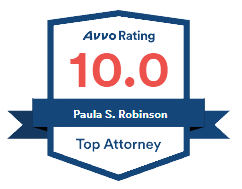Injured workers are entitled to compensation for their accepted work injuries, including lost wages and medical treatment. If your Claim is denied, the process of filing a Claim Petition can be involved, lengthy and financially stressful. While some claims are straight forward and easily accepted, as the injury is so obvious, there are times when an injury is not clear cut, with differences of opinion on the part of the Employer, and you, the injured worker. If your Claim has been denied, you owe it to yourself to retain professional help from an experienced workers’ compensation attorney.
There are multiple reasons why an injured worker may have a compensation claim denied and there are ways to help avoid this problem.
1. Claims Not Reported in a Timely Way
While some injuries take a while to set in, immediately reporting any injury is the first thing to do to protect yourself. Report to injury to your supervisor, manager, or foreman. For example, you may not have realized during your work day that what you thought was a minor burn is causing you a great deal of pain. Rather than wait to see if it can be managed through your own methods at home, make sure to seek the proper medical professional approved by your company to evaluate the wound and document it. If it turns out that the wound is not severe, no harm is done. If, however, the wound becomes infected or turns out to be deeper than you realized; you have already begun the process of managing your workers’ compensation documentation by having yourself assessed by the approved health care professional.
2. Lack of Documentation or Necessary Signatures
In order to move a compensation claim forward, you must sign all necessary documentation at each step of the process. For example, your employer, through their workers’ compensation carrier may ask you to sign a Medical Authorization to allow your health care records to be evaluated in order for your claim to be confirmed. Cooperate with your employer on this point, it will only help your case.
3. Injury is Blamed on a Pre-Existing Condition
There can be problems sorting out a new injury if it is found alongside a pre-existing condition. This may provide a loop hole for an insurance company to attempt to lower the amount of a claim or deny it altogether. This is when it is particularly important to properly document your injury, treatment, and recovery plan while working closely with health care professionals and an attorney who can sort out the injury caused in the work setting, and make sure the right questions are asked in Court before a Workers’ Compensation Judge.
4. Injury Denied as Work Related
A work related injury that is not witnessed by administrators or supervisors can be denied if the insurance company has reason to believe that the injury did not actually occur onsite. This problem can be avoided by retaining the information from witnesses who observed your injury or the immediate aftermath. If you are injured in a building or other place of employment after hours, be sure to allow a coworker to see what happened so that they can be a witness for you if your claim is denied.
5. An Injury Report does not Line Up with Medical Findings
 Be sure to ask your employer to complete an Injury Report, so your injury is on record. Also carefully complete the same so that it will make sense when compared to your medical reports. For example, if you make a mistake in the report and indicate that your injury would have occurred on the left side of your body while your medical report shows problems on the right side, it may cause the reviewer to assume that the claim was fabricated, and at the very least, cause confusion on your claim.
Be sure to ask your employer to complete an Injury Report, so your injury is on record. Also carefully complete the same so that it will make sense when compared to your medical reports. For example, if you make a mistake in the report and indicate that your injury would have occurred on the left side of your body while your medical report shows problems on the right side, it may cause the reviewer to assume that the claim was fabricated, and at the very least, cause confusion on your claim.
By helping yourself, you will be helping your lawyer be the best advocate for your case.









